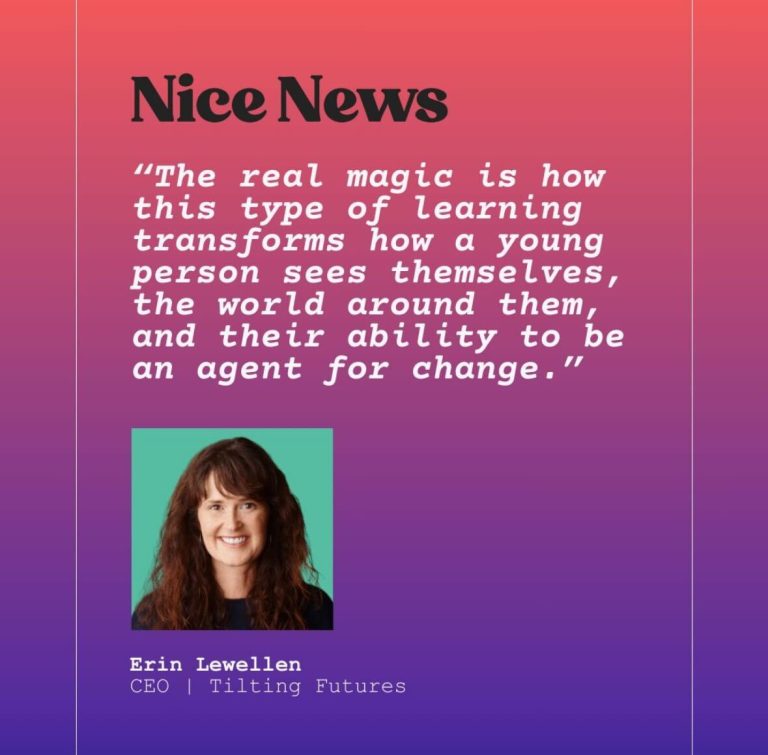Nick Kristof gives suggestions for designing your own ‘Win a Trip’ experience, and points to Global Citizen Year: “If you’re a high school senior, think about taking a “gap year” — nearly all colleges will defer admission — and exploring the world. It’ll be cheaper than a year of college and may well be more educational.” Read Nick Kristof’s full article below.
Each time I announce my annual “win-a-trip contest,” to take a university student with me on a reporting trip to the developing world, I get indignant letters.
“Why put such a confining restriction as ‘university students’?” asked Laura McNamara. “How about students of life?”
Betty Michelozzi wrote that she got her first passport at age 63 to go to Guatemala on a Habitat for Humanity team and spent the next 15 years leading such groups. And Peggy from Oregon asked tartly what I was going to do for “us old folks, who aren’t dead yet?”
Point well taken. So for this fifth anniversary trip, I’m going to take not only a university student but also someone over 60. Seniors, dig out your anti-malaria mosquito netting now.
But first, a caution: Colleagues are sadly suspicious of these trips. Maybe it goes back to a night a co-worker and I spent in an abandoned hut in Congo.
My friend noticed a huge tarantula in the thatch roof directly above him and objected to turning out the flashlight. I scolded him for his timidity, suggested the tarantula was probably dead, mocked the idea that it would fall on him, noted dismissively that it would be absurd to switch places, and bullied him into silence. We turned off the light — and the next thing I heard was a small “thud” beside me. And then a scream.
I’m not sure where we’ll go on this win-a-trip, but one possibility is overland to Timbuktu, another is across either Sudan or Malawi, and a third is to Pakistan, India and Nepal. We’ll explore education, health and nutrition, and you’ll blog on NYTimes.com and record video diaries.
On the very first win-a-trip in 2006, we were held up at gunpoint in the Central African Republic. But we also were able to shine a powerful spotlight on maternal mortality when we came across the wrenching scene of a woman dying in childbirth in Cameroon.
One point of these trips is that there are solutions. Helping people is hard, and plenty of interventions fail. But we’re getting smarter at figuring out what makes a difference. In Congo, we saw how deworming children once a year — for about 50 cents per child — reduces anemia and sickness, and leaves children more likely to attend school.
(In case our win-a-trip cuisine has shortcomings, I offer each companion a special bonus: a free deworming pill.)
While one aim of the win-a-trip contest is to focus attention on global issues, another is to encourage Americans to travel in the developing world. That’s why I started with young people: arguably, the single biggest failing of American universities is that they are parochial and don’t adequately expose students to the one-third of the world that lives on less than $2 a day.
Each year, some of the luckiest entrants in my contest are those who lose — and are so miffed at me that they organize their own trips. It’s crazy to spend college tuition studying Spanish on campus, for example, when you can learn the language far more cheaply in Peru.
If you’re graduating from college, think about the Peace Corps, Princeton in Africa, or other chances to work or live abroad. I recently met Molly Fay, who spent a year after college in Kenya helping with “camel clinics” — health clinics that travel to remote villages by camel. That experience transformed her life. She resolved to become a doctor and is now at Mount Sinai School of Medicine.
If you’re a high school senior, think about taking a “gap year” — nearly all colleges will defer admission — and exploring the world. It’ll be cheaper than a year of college and may well be more educational.
I took a gap year myself, working for the Future Farmers of America youth organization and then picking peaches on a farm in France. My eldest son is taking a gap year in China right now.
Look up Global Citizen Year, which places gap-year students in Africa and Latin America. Or find a country to teach English in through WorldTeach.org. Or volunteer through omprakash .org.
It used to be that it was mostly young people who wanted to change the world. But increasingly older generations are joining in and doing extraordinary work — the winners of the annual “Purpose Prize” for people over 60 are extraordinarily inspiring. And an “encore career” — a post-retirement job, possibly volunteer — allows seniors to do meaningful work on their own schedule. Encore.org is an excellent resource.
So, whether you’re a student or a senior, apply for my win-a-trip contest, and together we’ll try to spotlight some of the world’s neglected problems. To apply, visit my blog, nytimes.com/ontheground, and thanks in advance to the Center for Global Development for helping screen applications.
But even if you don’t win my trip, I hope that you’ll go out and fashion your own.



